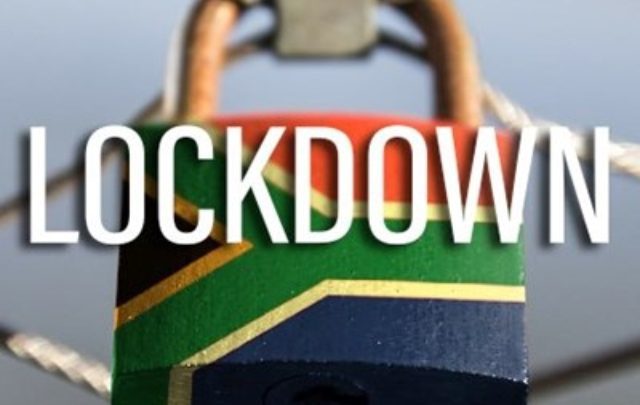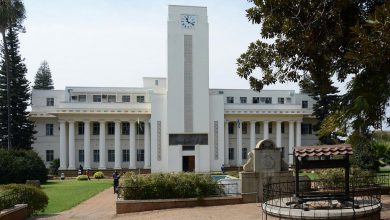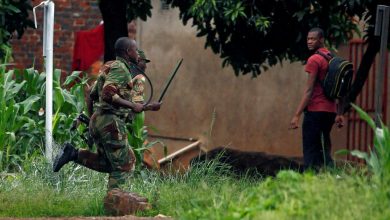
By Khumbulani Ndlovu
Zimbabwean citizens domiciled in South Africa are facing numerous challenges as the country battles the spread of Coronavirus (Covid-19). The country has been under lockdown since March 26, 2020.
The lockdown has led to a sudden halt in some of the economic and social activities in the country. The country has been hardest hit by the infectious virus and currently has the highest confirmed cases of Covid-19 in the entire continent. Latest figures show that South Africa’s cumulative confirmed cases have surpassed 15000 as of May 18, 2020.
South Africa is Africa’s second largest economy.
It was one of the first African countries to declare a state of disaster followed by a nationwide lockdown, soon after the first few positive cases were reported. The lockdown meant that all social and economic sectors had to be shut down for 21 days leaving only essential services in operation. The lockdown was further extended by 14 days as the infection rate continued to rise unabated.
After the extension expired on April 30, the country adopted a risk adjusted approach in easing the lockdown. The country is currently on level 4 having moved down from level 5 of the phased approach.
The country is home to an estimated 3 million Zimbabweans, most of whom work in the hospitality sector, which includes restaurants, coffee bars, hotels and night clubs. Following the announcement of the lockdown by the country’s President Cyril Ramaphosa, many Zimbabweans in the country have found themselves facing a myriad of challenges.
The hospitality industry is one of the sectors that has been excluded from the essential services list. Income for most Zimbabweans employed in this sector has abruptly dried up. Apart from the heap of other monthly bills that need to be settled, many have found themselves struggling to even put food on the table for themselves and their families. The struggle has not been felt in South Africa alone, but the lockdown has had far reaching consequences in Zimbabwe too, where thousands of households rely on remittances and groceries sent by their loved ones working in South Africa.
Another sector that has been hard hit by the lockdown, is the cross-border goods courier service popularly known as oMalayitsha. Both the South Africa and Zimbabwe borders are closed for human travel and non-cargo transportation. This has meant that those involved in this business have been grounded either in Zimbabwe or South Africa awaiting the reopening of the borders. Vehicles used by most oMalayitsha are purchased through financial institutions in South Africa and with business currently on hold, this poses another serious challenge of defaulting on monthly vehicle payments.
To mitigate the effects of Covid-19 on the poor and vulnerable citizens, the government of South Africa has unveiled numerous interventions that include providing poor households with food parcels, increasing child grants and pensions as well as introducing a new unemployment grant. Unfortunately, the majority of Zimbabweans do not qualify for this relief assistance due to the criteria used to register beneficiaries.
The Unemployment Insurance Fund (UIF) facility availed by the government as part of the relief measures has been a nightmare for foreign nationals in South Africa. Employers have been given the responsibility of applying for UIF on behalf of their employees. However, reports coming through are that only applications for South African citizens are being approved. Foreign nationals including many Zimbabweans have been left stranded and frustrated.
Mlungisi Ndlovu an employee at a restaurant in Pretoria said, “This situation happened so sudden and without notice. Some of us do not have any savings in the bank that can sustain us for this long. We rely on monthly salaries that we get from our employers, in order to support ourselves and our families back home in Zimbabwe”
Mr Nqabutho Mabhena who is the chairperson of the Zimbabwe Community in South Africa, lamented the sudden loss of income that has befallen many Zimbabweans, “The majority of Zimbabweans in South Africa are doing menial jobs. They work in places like restaurants, hotels and construction sites. These sectors have been the hardest hit since the lockdown was declared by President Cyril Ramaphosa. We have discovered that most of them are not registered for UIF making it difficult for them to have access to income during this difficult time.”
To compound matters even further, the South African Finance Minister, Mr Tito Mboweni has suggested that labour and employment policies in the country must be amended to mitigate the issue of unemployment in the country. He suggested that 80% of employees in workplaces, especially those in the hospitality sector should be South African Citizens. If this is a sign of what is to come in terms of labour policy in South Africa after the lockdown, Zimbabweans in South Africa face the sad prospect of coming out of the Covid-19 pan, straight into the unemployment fire.
Mr Mabhena cautioned against taking a myopic and selective approach in addressing employment issues in South Africa, “While we understand that South Africa is a sovereign country and that government is well within its rights to put its citizens first before migrants, we must deal with the practical reality surrounding this matter. Migration in the SADC region will continue as has been seen in the last two decades where thousands of Zimbabweans have flocked to South Africa as a result of the economic collapse in their home country. We are of the view that the issue of migration should be juxtaposed with the issues of economic development or lack thereof in countries like Zimbabwe. Such discussions should take place at SADC level to find solutions to economic problems. This is the only approach that will help to stem the issue of economic migration.”
The Zimbabwean embassy in South Africa has begun the process of repatriating those citizens that managed to apply for repatriation assistance. For some, this was the only option left as they could not remain in South Africa any longer without any income to pay rentals and buy food. The future is uncertain for these returnees back in Zimbabwe as the country is facing its own unemployment and economic challenges.
For the majority who decided to stay put in South Africa, a bleak and uncertain future awaits. There appears to be no light at the end of the tunnel. This does not even look like a tunnel; it is a hole and for most, it will take ages to climb out.
Khumbulani Ndlovu is a Zimbabwean living in South Africa. He is a final year student at the University of South Africa (UNISA) studying Communication Science. Ndlovuk2010@gmail.com






